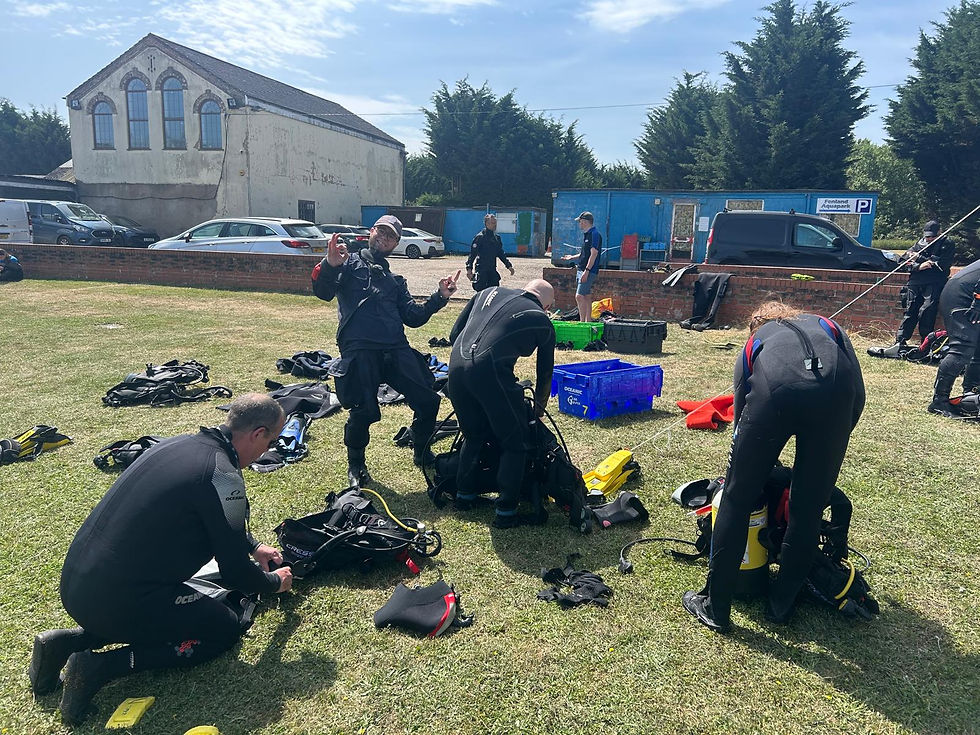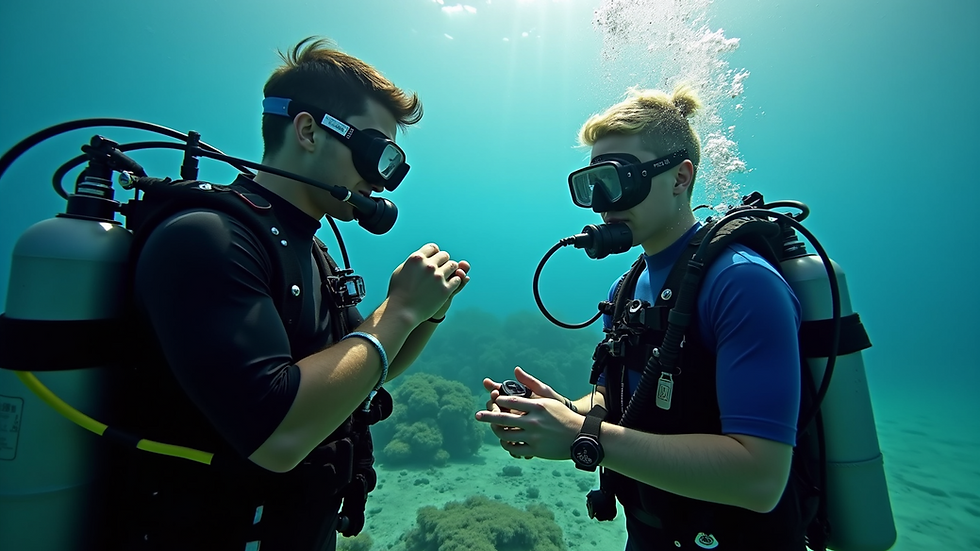Building Confidence Underwater Through Training
- Karl

- Jul 29, 2025
- 3 min read
Diving into the underwater world can be an exhilarating experience, but it also requires a solid foundation of skills and confidence. Many aspiring divers feel nervous or unsure when they first enter the water. The key to overcoming these feelings is proper training. Through structured dive training, you can build the confidence needed to enjoy safe and rewarding underwater adventures.
Why Dive Training is Essential for Confidence
Confidence underwater doesn’t come naturally for everyone. The unfamiliar environment, equipment, and breathing techniques can be intimidating. Dive training provides a controlled setting where you learn essential skills step-by-step. This training helps you:
Understand how your equipment works
Master breathing techniques with a regulator
Practice buoyancy control to move effortlessly
Learn emergency procedures to stay safe
For example, during training, you will practice clearing your mask if water leaks in or recovering your regulator if it gets dislodged. These exercises prepare you for real-life situations, reducing anxiety and increasing your trust in your abilities.

Structured dive training also introduces you to the underwater environment gradually. You start in a pool or shallow water before progressing to open water. This gradual exposure helps your mind and body adapt, making you feel more comfortable and in control.
How Dive Training Builds Practical Skills
Dive training is not just about theory; it is hands-on and practical. You will learn and practice skills such as:
Equipment assembly and checks - Knowing how to set up and inspect your gear ensures it functions properly.
Breathing and equalising - Techniques to breathe calmly and equalise pressure prevent discomfort and panic.
Underwater communication - Using hand signals to communicate with your buddy keeps you connected.
Navigation and orientation - Learning to use a compass and natural landmarks helps you find your way.
Emergency responses - Handling out-of-air situations or equipment failure builds resilience.
Each skill is taught with clear instructions and repeated practice. Instructors provide feedback and encouragement, helping you improve steadily. This hands-on approach is crucial for building muscle memory and confidence.

Additionally, dive training often includes classroom sessions where you learn about dive physics, physiology, and safety protocols. Understanding the science behind diving helps you appreciate why certain procedures are important, reinforcing your confidence in following them.
How long does it take to become an open water diver?
The time it takes to become a certified open water diver varies depending on the course structure and your availability. Typically, the process includes:
Knowledge development: Online or classroom learning covering dive theory.
Confined water dives: Usually 4 sessions in a pool or calm water to practice skills.
Open water dives: At least 4 dives in open water to demonstrate competence.
Most people complete the course within 3 to 5 days if attending full-time. However, some prefer to spread it out over several weeks or weekends. The key is consistent practice and understanding rather than rushing.
For those interested, open water dive training offers a comprehensive and supportive environment to gain certification. This training ensures you are well-prepared and confident before exploring deeper waters.

Tips to Boost Confidence During Dive Training
Building confidence underwater is a gradual process. Here are some practical tips to help you feel more at ease during your dive training:
Practice breathing exercises on land to get comfortable with slow, deep breaths.
Visualise your dives beforehand, imagining yourself performing skills calmly.
Ask questions whenever you feel unsure; instructors are there to help.
Buddy up with a supportive partner who encourages and reassures you.
Take your time during skills practice; there is no need to rush.
Focus on positive experiences and celebrate small achievements.
Stay physically fit to reduce fatigue and improve your overall comfort underwater.
Remember, everyone progresses at their own pace. Confidence grows with experience, so be patient and persistent.
Continuing Your Confidence Journey Beyond Training
Once you have completed your initial dive training, maintaining and building confidence requires ongoing practice. Here are some ways to continue developing your skills:
Regular dives: The more you dive, the more comfortable you become.
Advanced courses: Consider specialties like buoyancy control, night diving, or underwater navigation.
Join dive clubs or groups: Diving with others provides support and shared learning.
Review skills periodically: Refresh your knowledge and practice key skills.
Stay informed about new equipment and safety techniques.
Confidence underwater is a lifelong journey. Each dive adds to your experience and comfort level, opening up new opportunities to explore the underwater world safely and joyfully.
Building confidence underwater through dive training is essential for a safe and enjoyable diving experience. With the right training, practice, and mindset, you can overcome fears and fully embrace the wonders beneath the surface. Whether you are just starting or looking to improve, investing in quality dive training is the best step toward becoming a confident diver.






Comments